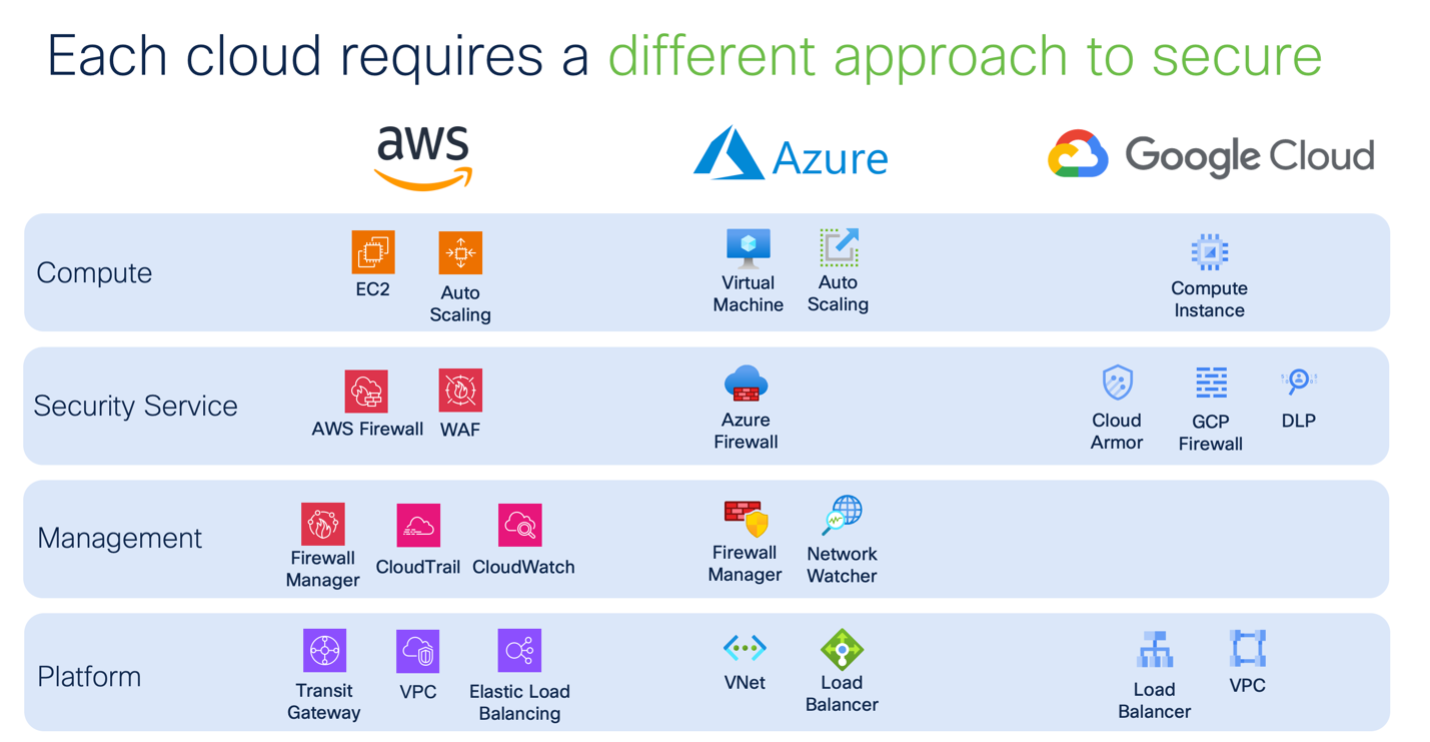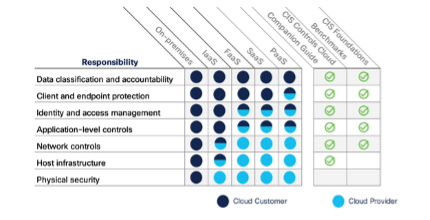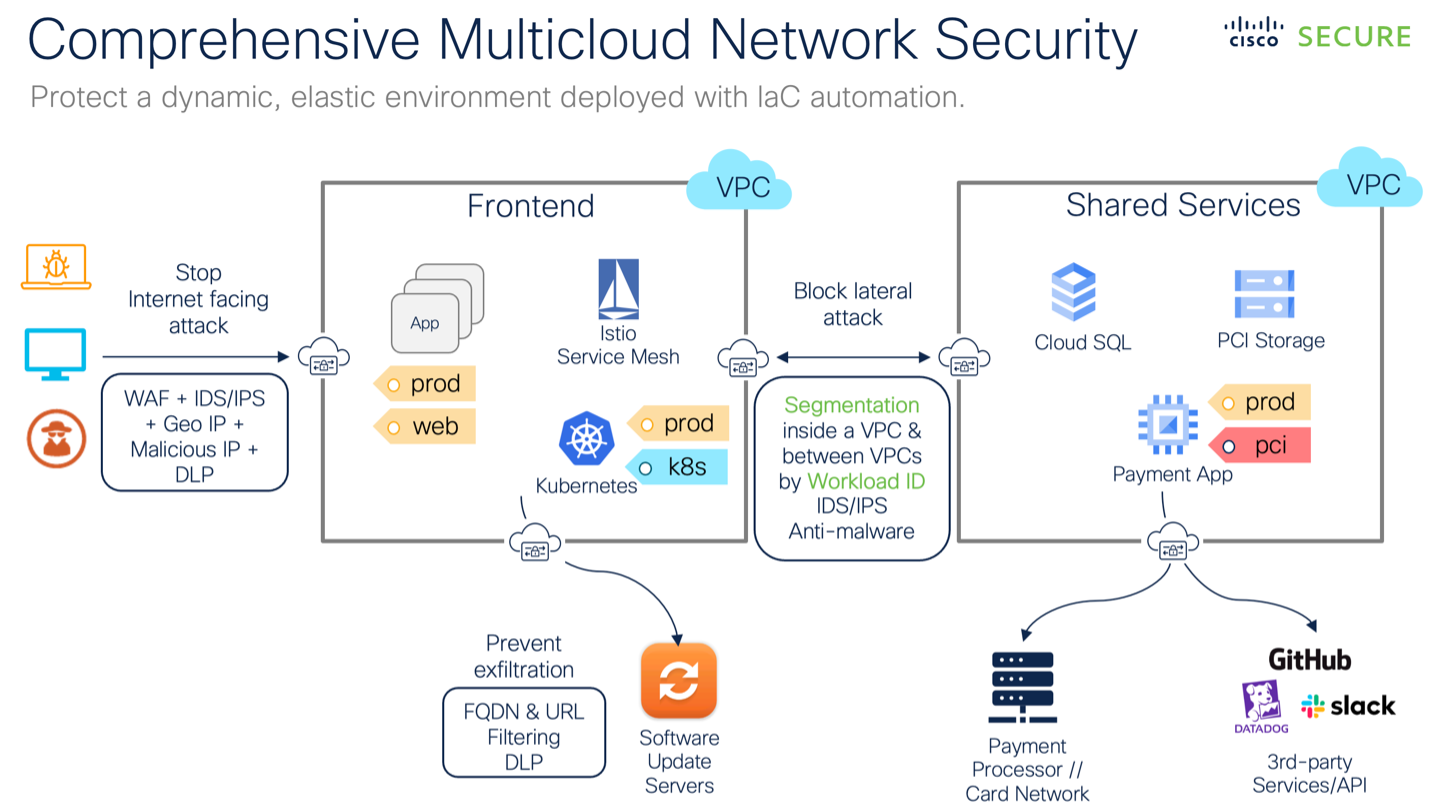Requirements for a multicloud security solution
Although multicloud security solutions have different functionalities based on their category, they share a set of common criteria, such as simplicity of deployment and management. When evaluating a vendor's multicloud security solution, consider the following aspects:
Continuous visibility
To detect malicious activities such as data exfiltration, you need to combine your cloud asset information and threat intelligence with complete visibility into all traffic flows, including inbound from and outbound to the internet, east-west, and to platform-as-a-service (PaaS) services.
Comprehensiveness
A solution with a thorough and robust feature set will reduce or eliminate the need for multiple point products and enable you to consolidate your cloud security. Look for critical capabilities such as dynamic policy enforcement, segmentation, network protection (cloud firewall), and web protection.
Active defense capabilities
If your security only allows you to react to threats rather than proactively stop them, your team will always remain at least one step behind the adversary. In the past, active defense required an agent-based solution. Now, organizations can achieve active defense with an agentless approach, reducing deployment and maintenance challenges.
Cloud scalability
Business requirements and environments continuously change, and security needs to be able to quickly scale in and out to adapt to those changes. The multicloud security solution should automatically scale security to meet demand, discover new assets as they are implemented in the production environment, and apply context-based policy—so your team doesn't have to constantly worry about operating the tool across multiple clouds, regions, and accounts. The multicloud security solution should automatically scale security to meet demand, discover new assets as they are implemented in the production environment, and apply context-based policy—all without manual intervention, so your team doesn't have to constantly worry about operating the tool across multiple clouds, regions, and accounts.
Ease and speed of deployment
Your cloud security solution shouldn't amplify the complexities of an already complex multicloud environment, yet many vendors' products are difficult and time-consuming to deploy across public cloud infrastructure. Look for a turnkey solution that simply achieves outcomes, is fast to implement, and works natively in your environment. This will eliminate the need for admins to manually adapt the environment—instead, the solution "learns" the environment through the APIs in that cloud.
Single policy framework
A centralized control plane across disparate clouds enables you to enforce security policies consistently from one controller, simplifying multicloud management and alleviating complexity. To achieve this, the security solution should provide an abstraction layer that decouples the control plane and data plane.



